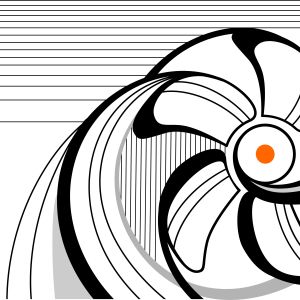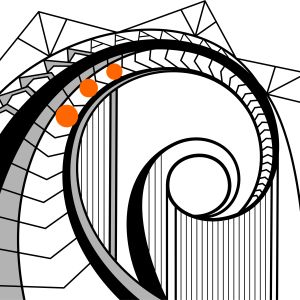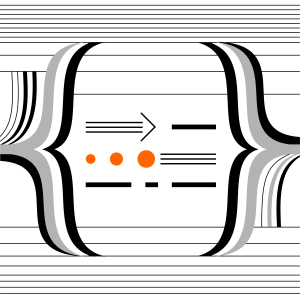Guide to Modern Marine Air Compressors: 10 Top Models for 2025
Introduction
On any modern vessel, compressed air is a vital utility, as critical as fuel or electricity. From starting the main engine to powering service tools and control systems, the reliability of a ship's compressor plant is non-negotiable. However, the selection criteria for marine compressors are evolving. While durability remains essential, there is a growing emphasis on energy efficiency, lower lifecycle costs, and advanced control systems. This guide provides a market overview of 10 notable compressor models, categorized to help technical managers and shipowners navigate the latest innovations and make informed investment decisions.
Category 1: Robust & Cost-Effective Workhorses
These models are the bedrock of many engine rooms. Typically based on proven piston technology, they are valued for their simple design, durability, and straightforward maintenance, offering the lowest initial capital expenditure.
1. Sperre HL-Series (e.g., HL2/77)
- Manufacturer: Sperre
- Technology: This water-cooled piston compressor is an industry benchmark for starting air applications. While a traditional design, its "innovation" lies in decades of refinement, leading to extreme reliability and a globally available network of spare parts. It's built for longevity with minimal electronic complexity.
2. Sauer PASSAT-Series (e.g., WP65L)
- Manufacturer: Sauer Compressors
- Technology: The Passat is a three-stage, air-cooled piston compressor renowned for its robust construction. Sauer focuses on low maintenance and high reliability, with features like stainless steel valves and oil-pressure lubrication. It's designed to operate reliably in the most demanding marine environments.
3. Hatlapa L-Series (e.g., L90)
- Manufacturer: Hatlapa (MacGregor)
- Technology: As another classic in the starting air segment, the L-series piston compressors are valued for their straightforward, durable design. They feature a three-point mounting system with rubber elements to reduce vibration transfer to the ship's structure, a simple but effective innovation for onboard comfort and equipment longevity.
Category 2: The Efficient Mid-Range
This category represents the balance of performance, cost, and modern features. Dominated by screw compressor technology, these models offer significantly better energy efficiency than piston types and more advanced control options.
4. Tamrotor Marine Compressors (TMC) Smart Air Series
- Manufacturer: TMC
- Technology: TMC's Smart Air series of screw compressors brings energy savings to the mid-market. Their key innovation is the use of frequency controllers that adjust the motor speed to match air demand, reducing energy consumption during periods of lower load. This offers a significant lifecycle cost advantage over fixed-speed compressors.
5. Atlas Copco MAS GA Series
- Manufacturer: Atlas Copco
- Technology: The MAS GA series are marine-certified, oil-injected screw compressors designed for service air applications. They incorporate Atlas Copco's highly efficient screw element design and the Elektronikon® controller, which provides advanced monitoring, safety shutdowns, and maintenance scheduling, bringing a higher level of intelligence to the engine room.
6. Kaeser Kompressoren ASK Series (Marine)
- Manufacturer: Kaeser
- Technology: Kaeser's innovation is centered on its proprietary "Sigma Profile" screw rotor design, which yields more compressed air for the same energy input (up to 15% more efficient than conventional rotors). Their marine packages are compact and designed for easy access to all service points.
Category 3: Advanced High-Efficiency Models
These compressors represent the cutting edge, designed for maximum energy savings and the lowest possible total cost of ownership. They feature the most advanced technologies like Variable Speed Drive (VSD), oil-free elements, and sophisticated digital integration.
7. Atlas Copco MAS+ GA VSD series
- Manufacturer: Atlas Copco
- Technology: This is the premium tier for service and instrument air. The VSD+ technology offers average energy savings of up to 50% compared to fixed-speed models. The innovative vertical, oil-cooled interior permanent magnet motor and compact, direct-drive design result in a very small footprint and exceptionally quiet operation.
8. TMC VSD Smart Air Compressors
- Manufacturer: TMC
- Technology: TMC's top-tier VSD models directly compete with the best in the market, focusing on maximizing energy efficiency. Their systems are highly integrated, with advanced controllers that provide detailed operational data. The primary focus is on delivering the lowest possible lifecycle cost through dramatic reductions in energy consumption.
9. Sauer SAUER-C-PURE
- Manufacturer: Sauer Compressors
- Technology: A significant innovation, the C-PURE is an oil-free, high-pressure piston compressor. It is designed for specialised applications where air or gas purity is absolutely critical (e.g., nitrogen systems, special gas compression). Being completely oil-free, it eliminates the risk of contamination and the need for downstream filtration, representing a major technological step for high-pressure systems.
10. Ingersoll Rand R-Series RS-200-250ie
- Manufacturer: Ingersoll Rand
- Technology: This screw compressor features a two-stage airend, which is inherently more efficient than a single-stage design for the same output. Combined with its VSD technology and advanced CONNEX™ controller for remote monitoring and predictive analytics, it represents a highly advanced solution for large vessels requiring significant volumes of service air with maximum efficiency.
Conclusion
The marine compressor market is clearly moving towards smarter, more efficient solutions. While the initial cost of advanced VSD and oil-free models is higher, the return on investment through energy savings and reduced maintenance is compelling. The decision is no longer about just buying a compressor; it's about investing in a system that will lower the vessel's operational expenditure and environmental footprint for years to come. The right choice depends on the vessel's specific needs, but the trend towards efficiency and intelligent control is undeniable.





